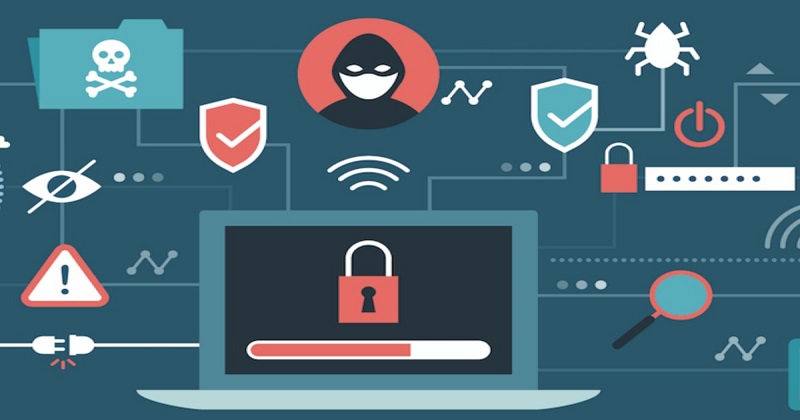
UAE issues guidelines on ‘How to protect yourself from online scams?’
The time a fraudster took recently to convince an Emirati over the phone to share confidential data to update information with his bank was only seven minutes.
According to the person victimized, at first, he was reluctant, but later the positive tone of the imposter hardly left any scope for doubt. A number of studies in advanced markets have shown that surprisingly it is often the educated people and those with knowledge in investing who end up becoming victims of scams.
For example, Rashid was convinced to share his password with the fraudster and the call was hung and the money was withdrawn from his account within an hour.
The investigation is ongoing, but this fraudulent incident sheds light again on the need to be vigilant and not to share sensitive information or data with anyone.
Ways of fooling people
- Phishing: This is primarily when people are contacted through emails posing as a legitimate entity to lure individuals into providing sensitive information such as personally identifiable information, banking, credit card details, and passwords.
Voice phishing (also known as vishing): It’s a fancy term that refers to fake phone calls made to people to pay or reveal personal information. It sounds like a telephone scam, but with a more complicated term.
Muhammad Khaled, Senior Solution Engineer Middle East at Acronis, said, “Phishing is a known threat, while vishing is calling a victim and trying to lure sensitive information under plausible pretext. A common form of it is the so-called ‘support scam’ when a victim is getting contacted by scammers pretending to be a tech support team of an application or a service. Another one is a ‘call from a bank anti-fraud team’ when a victim is alerted of a ‘suspicious transaction’ and asked to provide their details to stop or revert it. There are seasonal scams with tax returns and tax submissions. Recently there was a wave of ‘eCommerce return’ scams when a victim receives an email looking like a legitimate purchase confirmation from an online shop. There is a phone number in the email of ‘customer service’ and the user is prompted to call it if they did not place the order.”
- Smishing: Text messages containing false links with a plan to perform fraud are described as smishing. “Criminals gain access to the victim’s bank account and take the money illegally. It usually involves contacting the victim via text message (smishing) and providing a link to click through to a scam website, which can take any personal and financial details. Bank frauds can also happen on the phone, with fraudsters tricking people into handing over their bank details or banking security details,” said Devesh Mamtani, Chief Market Strategist, Century Financial.
Moreover, the other common ways to fraud people include the use of malware mobile applications and the compromised websites that collect payment data.
Most of these ways are used to deceive people with hard-earned money. This led to an increased crime risk at the time of the pandemic. The UAE Covid-19 cybercrime survey 2020 by KPMG reveals, 83 percent of UAE businesses surveyed had seen a change in cybercrime as a result of the pandemic. According to KPMG, businesses expect to see an important change to phishing scams, security violations, email spamming, ransomware, and online scams this year.
“The number of reported investment scams rocketed by 152 percent this year,” says Mamtani. As people were working from home and had extra time at hand, fraudsters seduced many with an array of exotic-sounding alternative investments and even represented private banks or investment firms to gain the victim’s trust. “Fraudsters are getting increasingly creative, latching on to whatever big theme is in the news. Some other schemes people have fallen for involve fraudsters claiming to have access to private pre-IPO shares of big companies about to go public,” added Mamtani.
How to stay protected
“The best way to be protected from such scams is to use the appropriate cyber strategy and to be aware. Especially for business corporations, there needs to be awareness training incorporated within the company,” said Khaled.
Be vigilant always.
- Don’t open attached files from unknown sources.
- Do not click on links that you receive via emails or text messages from unknown sources, even if they are fascinating with a fully paid holiday
- So as to avoid the trouble of the additional costs of buying multiple software, you can use one single tool which in itself has one platform for the antivirus
- Use multi-factor authentication where available as an additional layer of security Multi-factor authentication has two or more different ways to identify you for login. The most common way is to use your mobile phone to receive a text message with a unique code.
- When you choose your passwords, do not reuse them across websites. Do not use your birthdays, anniversaries, or partner’s name as passwords. These are easy to remember but can be hacked and compromise the security and security of your account
- Block calls, if required, from cold calling marketing agents of companies that offer ‘once in a lifetime’ opportunities to make money
- You can also prevent companies from sending you promotional messages or calls. Etisalat customers can send a message to 1451 as ‘DNC’.
- Do not store credit card information on websites. Whenever you go shopping, try to keep your details. If you are shopping online from a new website, explore the cash-on-delivery option.
Spot, stop, and report
- Spot: Know who you are dealing with. Scammers are good imposters
- Stop: Never fall prey to these scammers by opening emails or links from unknown sources
- Report: The sooner you report a case, the better the chances of preventing fraud

Post Your Comments